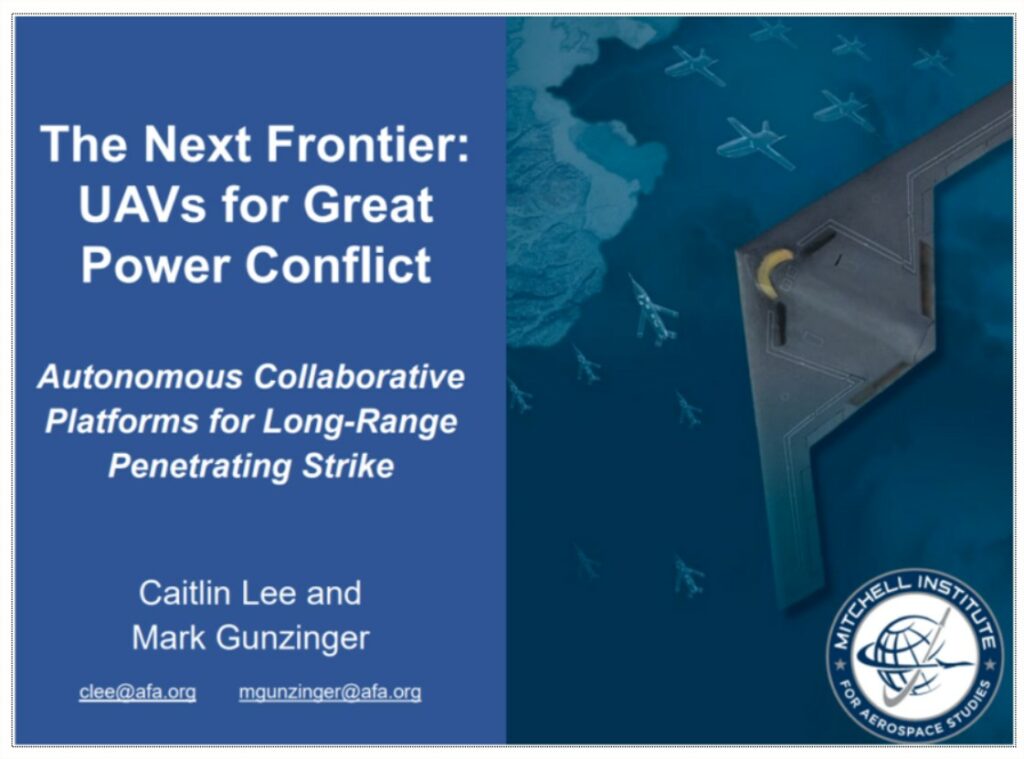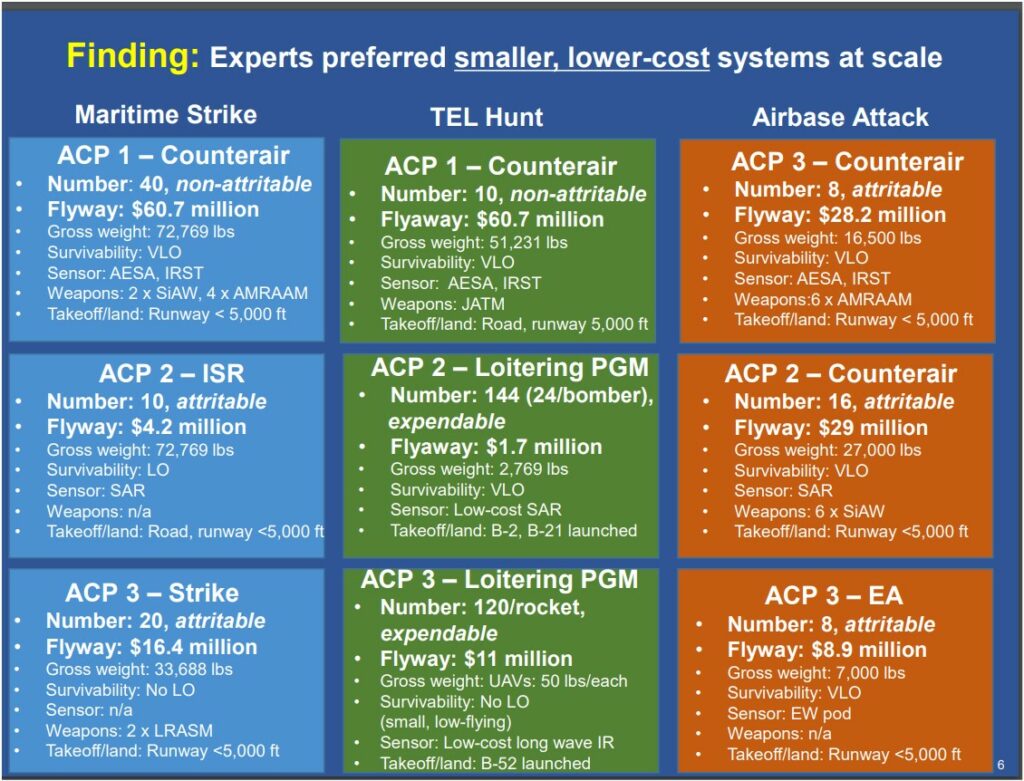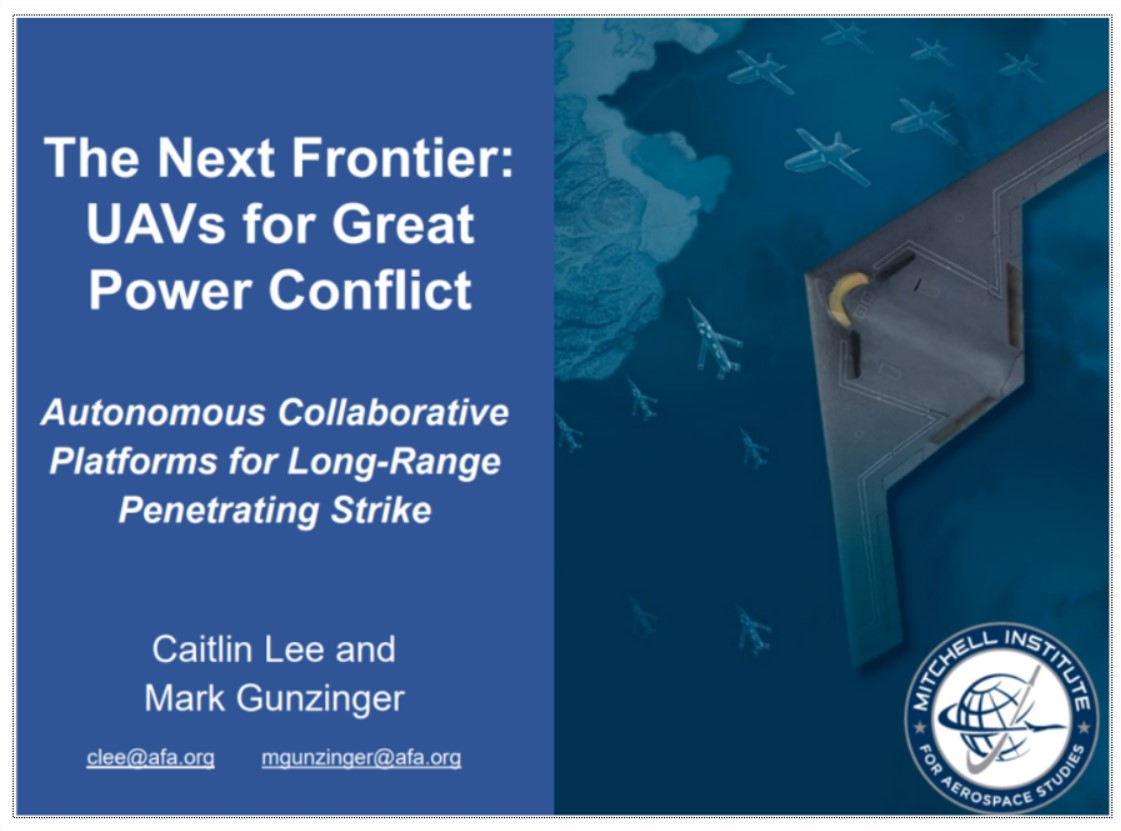
The Mitchell Institute for Aerospace Studies is pleased to announce a new entry in its Research Studies series, The Next Frontier: UAVs for Great Power Conflict | Part 1: Penetrating Strike by Caitlin Lee, Senior Resident Fellow at the Mitchell Institute for Aerospace Studies and Mark A. Gunzinger, Director of Future Concepts and Capability Assessments at the Mitchell Institute for Aerospace Studies.

Only a few years ago, the idea of the U.S. Air Force operating uninhabited aerial vehicles (UAV) with artificial intelligence (AI) in highly contested airspace seemed to many like science fiction. Fast-forward to 2022, and Air Force leaders have made the rapid fielding of next-generation UAVs, known as “autonomous collaborative platforms” (ACPs), a top priority. A confluence of events—the strategic threat posed by China, advances in AI and other key technologies, and growing evidence that these technologies can improve operational outcomes—have created a groundswell of support across the Air Force, the Department of Defense, and industry, to move this technology into the battlespace quickly.
The Mitchell Institute for Aerospace Studies invites you to watch our rollout for our newest research paper: The Next Frontier: UAVs for Great Power Conflict – Part I: Penetrating Strike by Caitlin Lee, Senior Fellow for UAV and Autonomy Studies and Mark Gunzinger, Director of Future Concepts and Capability Assessments and a former Deputy Assistant Secretary of Defense. In attendance was Maj Gen Scott Jobe, Director of Plans, Programs, and Requirements, Headquarters Air Combat Command; Brig Gen Dale R. White, Program Executive Officer for Fighters and Advanced Aircraft, Air Force Life Cycle Management Center, Air Force Materiel Command; David R. Alexander, President, Aircraft Systems Group General Atomics Aeronautical Systems, Inc.; along with Steve Fendley, President, Unmanned Systems Division at Kratos Defense and Security Solutions. The event was moderated by Lt Gen David A. Deptula, USAF (Ret.), Dean of the Mitchell Institute for Aerospace Studies.




